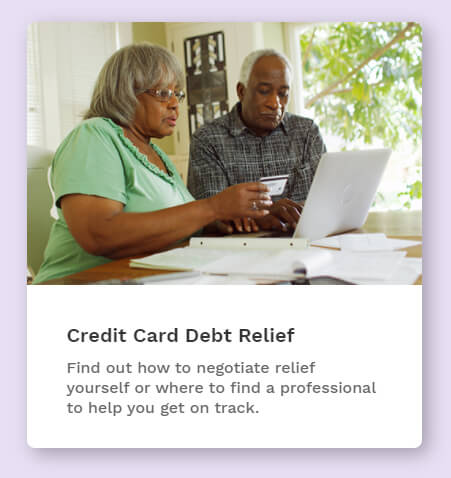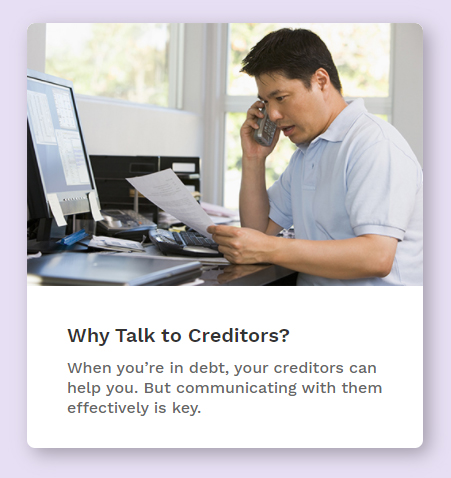What to Do If Your Child Gets a Credit Card Offer
Check for Identity Theft by Pulling Credit Report
by Julie Jaggernath
We all know those credit card offers that come in the mail. But what if you get one addressed to your child? While you might be able to find out how this happened by contacting the company that sent the offer, this doesn’t always work. There are however concrete steps you can take to protect your children from the potential consequences of identity theft and financial fraud. These work for children who are under the age of majority and not actively using credit; they also work for those who have credit but hardly or never use it.
Why Fraudsters Target Child Identity Theft
Fraudsters commit child identity theft because most minors don’t actively use credit or have their credit reports checked often, if at all. Criminals change just enough details to avoid detection for as long as possible. Stealing a child’s real Social Insurance Number (SIN) to go with the right name makes it easy to pretend to be that child. Their year of birth and address can then be changed, enabling the fraudsters to do untold damage for many years if left unchecked.
Why Fraud is Committed Against Those Who Don’t Use Their Credit Much
While children’s personal information is the most lucrative and sought after target in the criminal world, the information of those who have credit but no longer use it regularly is also desirable. Think about a senior in your family who has a few paid off credit cards in their wallet, but that wallet is stored in someone’s drawer because the loved one has entered a care facility. Criminals will steal the senior’s identity, change their mailing address, and get to work doing as much damage as possible as quickly as possible. The senior and anyone looking after their affairs will be none the wiser because statements weren’t coming anyways for an account that wasn’t being used.
If this is your loved one’s situation, close any credit accounts they don’t really need. Then ensure that any credit that is left open is used at least once every few months. That way it will be noticeable if someone tries to commit fraud against them. And the same applies to everyone who has credit accounts they don’t actively use. Keeping them for “just in case” is great; just use them a little here and there to make sure you’ve got them available if you ever do need them.
Request Your Child’s Credit Report
Pulling a copy of your child’s credit report will help you figure out if something’s wrong. Fraudsters engaging in criminal identity theft on children count on the fact that parents don’t do this. This is especially true if you got a SIN for your child, which is needed for Registered Education Savings Plans (RESPs). Your child shouldn’t have a credit file until they reach the age of majority. However, what should be isn’t always the case. If your child has been the victim of fraud, they won’t be impacted right away because they aren’t applying for credit yet. However, it will take time to straighten things out and clear their record. You don’t want their first application for a credit card, student loan, or car loan declined due to a poor credit history report that they had nothing to do with.
While it might seem strange to check your child’s credit report, that’s exactly what parents need to do if they have concerns. Equifax Canada and TransUnion Canada are the country’s official credit reporting agencies. Make sure to request your child’s credit file from both. If identity theft has occurred, the agencies will tell you what to do next to clear your child’s name.
A Child Credit Card Offer Doesn’t Guarantee Identity Theft
Child identity theft isn’t always the cause of receiving a mistaken credit card offer. Companies buy lists of names and addresses for marketing purposes from many sources. The details on those lists aren’t always carefully vetted to align with the product being marketed. The same can happen if companies use publicly available information for marketing purposes. When you receive credit card offers or other marketing mail addressed to your child, there’s even a chance that your child supplied the information themselves. For example, seeing a pop-up ad that says they could win a fancy new gadget, but must be at least 18 years old, could cause some children to enter a fake birthday with their real name.
Help Your Children Know What Not to Share Online
Kids are bombarded with online safety information that helps them stay safe from identity theft. However, that doesn’t mean they fully understand how it applies to them. Beyond the personal messages and pictures that shouldn’t be exchanged electronically, help your children understand how to log into online accounts safely. Each account should have its own login with a unique password, and like toothbrushes, passwords are best not shared. Some sites and apps make it easy to log in with either a Google or Facebook account, but that can link accounts that you may not want to have linked.
5 Ways to Protect Your Money from Scams that Work for Everyone
For younger children, set up accounts with them and choose password reset questions that you also know the answers for. Consider establishing times where you’re present while your child uses certain apps, platforms, or programs. For example, most gaming platforms have public, private, and restricted chat options. By watching your child game, you’re able to see and hear what they’re sharing with their friends and potentially with strangers as well. This is another form of social media and a place where personal information can be leaked. Watching some of these kinds of activities helps you gain insight into their online behaviour, and while they’re young, you can help them learn the digital world’s rules. Restricting access entirely will eventually drive your children into secrecy and you’ll lose the ability to coach them and keep them safe.
What to Do If Your Child Has Been the Victim of Identity Theft
If your child or someone you love is the victim of identity theft or financial fraud, it’s important to report what happened and to get help to straighten out their affairs. The Canadian Anti-Fraud Centre has resources to do both. It might be necessary to file a police report. Equifax Canada and TransUnion Canada can tell you how to add a consumer statement to a credit file. The statement will explain to anyone looking at your child’s credit file that they were the victim of fraud; it will also state any added precautions you’d like creditors to take when granting credit in the future. Don’t be embarrassed or ashamed if this happened to your loved one or even to you – fraudsters committing criminal identity theft are sneaky and extremely good at what they do. Thousands of Canadians are affected every year; however, the sooner you take steps to repair the damage, the sooner you can put the ordeal behind your child.
Last Updated on July 2, 2024








My 11 year old is filling out card apps. What can I do to intervene.
Hi Tina, If a child fills out a credit card application, then theoretically nothing should happen. The application should be denied because the child isn’t old enough to sign a contract (to borrow money using a credit card), they don’t have a credit score, and they don’t have any income to pay the card off. So nothing should come of that. However, if your child is filling out the application using other people’s information or is just making stuff up, that could be considered fraud (a deliberate attempt to mislead others when signing a contract) and could get your child in trouble with the law. Having a discussion with your child about whatever the issue is would probably be a good idea. Depending on the situation, you could also only permit your child to access the internet in an open area of the home where everyone can see what they are up to. You could also install software on your computer and internet devices such as tablets or phones that limit access to certain sites or limits access to certain hours of the day. You could also change the passwords on all your devices so that only you know the password and have to sign your child in each time. This way if your child violates your rules, you can deny them access. These are all options you could consider using depending on the situation.